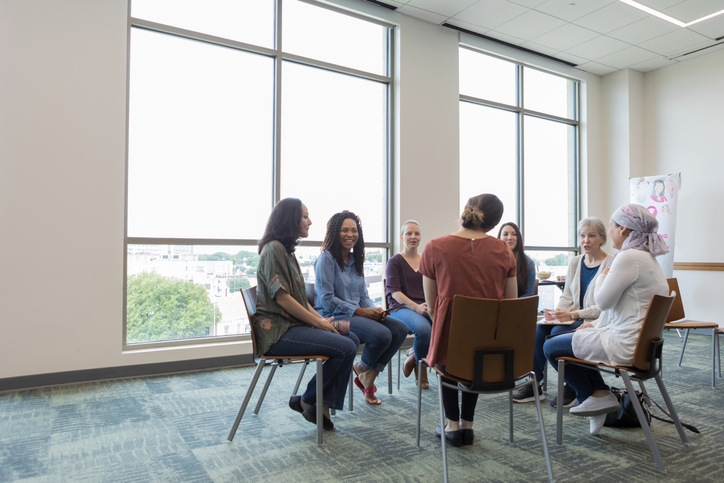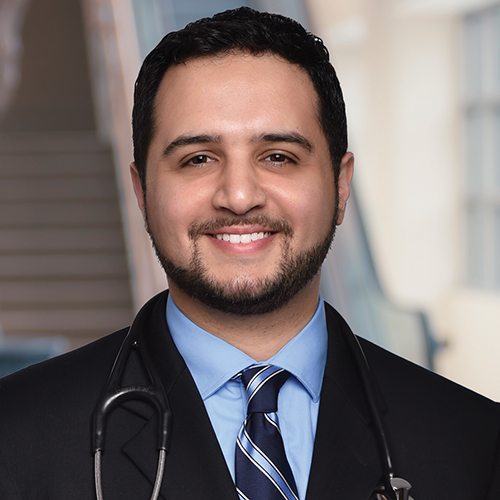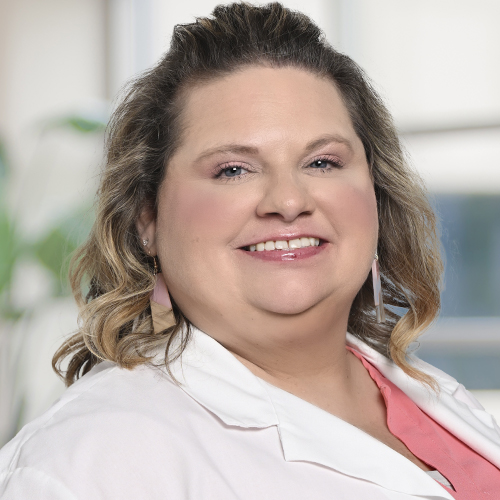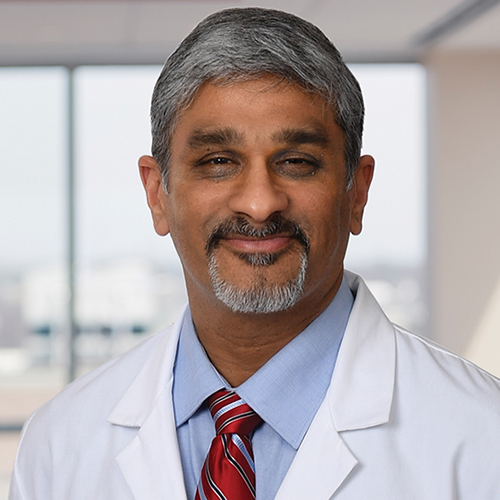How a Breast Cancer Support Group Is Healing Together
August 22, 2025
Categories: Cancer, Cancer Care
Tags: Breast Cancer, Oncology
A grassroots group of breast cancer survivors is proving that healing happens best in community.
When Riverside Cancer Institute patient Libby was diagnosed with breast cancer in November 2023, she did what many newly diagnosed patients do—she picked up the phone.
“I called everybody I knew who had had breast cancer,” Libby says. “It took hours and hours out of my time, which I wanted to do because I wanted to know all this information. But, I thought to myself, we need to get together in a group to talk so that I'm not having all these individual conversations.”
So she and her friend Julie—also a breast cancer patient—did exactly that. By December, the two had launched a grassroots support group. Their goal was simple: create a space for sharing experiences, resources, and hope.
Not Just a Support Group—A Lifeline
For Sheri, a fellow breast cancer survivor, joining the group brought unexpected relief. “I felt like I needed something that was going to normalize what I was going through and also have a bunch of resources,” she shares. “I didn’t know what to buy or what could help. It was very, very useful—and very positive.”
Even Sheri’s mother-in-law had concerns at first, worrying the meetings might be emotionally draining. “In truth, it is very forward-focused, very health-conscious,” she adds. “We take responsibility for what we can control, since so much of it you can’t.”
Michelle, one of the newest members of the group, was flooded with messages to reach out to Libby after her own diagnosis. “I must have had fifteen to twenty people send me the support group info,” she recalls. “So I reached out to Libby right away. I had so many questions.”
Michelle was diagnosed with triple negative stage 3+ breast cancer after a mass—nearly 12 centimeters—was discovered. “It just came up overnight,” she remembers. “It was the craziest thing.” She began treatment quickly, and found comfort in the group’s experience and honesty. “You don’t realize you even have a question about something until you hear they’ve gone through it.”
Meeting Nights: Laughter, Learning, and Letting Go
Meetings, which take place monthly at Trinity Church, aren’t what many expect. “Like Sheri said, there is some crying every once in a while,” Libby admits. “But, mostly laughter. We all know and believe being positive is a lot of the battle.”
The group has evolved to include components from HealingStrong, a program that emphasizes holistic healing—from nutrition and supplements to forgiveness and spirituality. “We go over a component at each meeting,” Libby explains. “But we modify if we need to. If somebody new comes in and they have a lot of questions, we focus on that.”
Forgiveness, in particular, stood out as a powerful theme. “You don't want to harbor ill will, or bad feelings, because that can feed into the cancer and be very negative,” says Sheri. “You want to forgive yourself and you want to forgive others. It’s important to try to have peace in your life as much as possible.”
More Than Patients—A Community of Teachers
The support extends beyond the women themselves. Their husbands have formed informal connections, texting and encouraging one another as caregivers. And Libby’s trademark “cancer bag”—a tote packed with books, snacks, and essentials—has become a rite of passage.
“We call it my cancer bag,” Michelle shares. “It goes with me everywhere.”
Even in differences, they find ways to support. Sheri, for example, had a double mastectomy without reconstruction—a less common path, but one that offered invaluable insight to a recent member considering the same. She was able to truly contribute to the conversation and help others realize just how significant the cancer journey is.
“I thought I was just going to get through it. Like, chemo was on the to-do list. Grocery store. Laundry. But that’s a hundred percent wrong,” Sheri says. “It was quite the shock. Being on this side of it now, and still getting help from these ladies—it’s just a constant reminder to live the best way you can.”
“Just Do It.”
If someone with a different type of cancer wanted to start their own group, Libby’s advice is clear: “Just do it. We had two of us, which helped.”
Michelle agrees. “You can go online and end up with more questions. But these women have done the research. They’ve lived it. It’s real answers from people who get it.”
The group is open to new members, meeting the second Thursday of each month at 7:00 PM at Trinity Church in Ashkum. Information cards are available at Riverside and, soon, at other local cancer centers.
As Dr. Ahsan Basha, host of the “C Word: Community, not Cancer” podcast, put it, “You can’t do anything about the past. You can barely do anything about the present. But you can create possibilities for the future—and that’s exactly what these women are doing.”
For more information on the Riverside Cancer Institute, go to myrhc.net/cancer.


